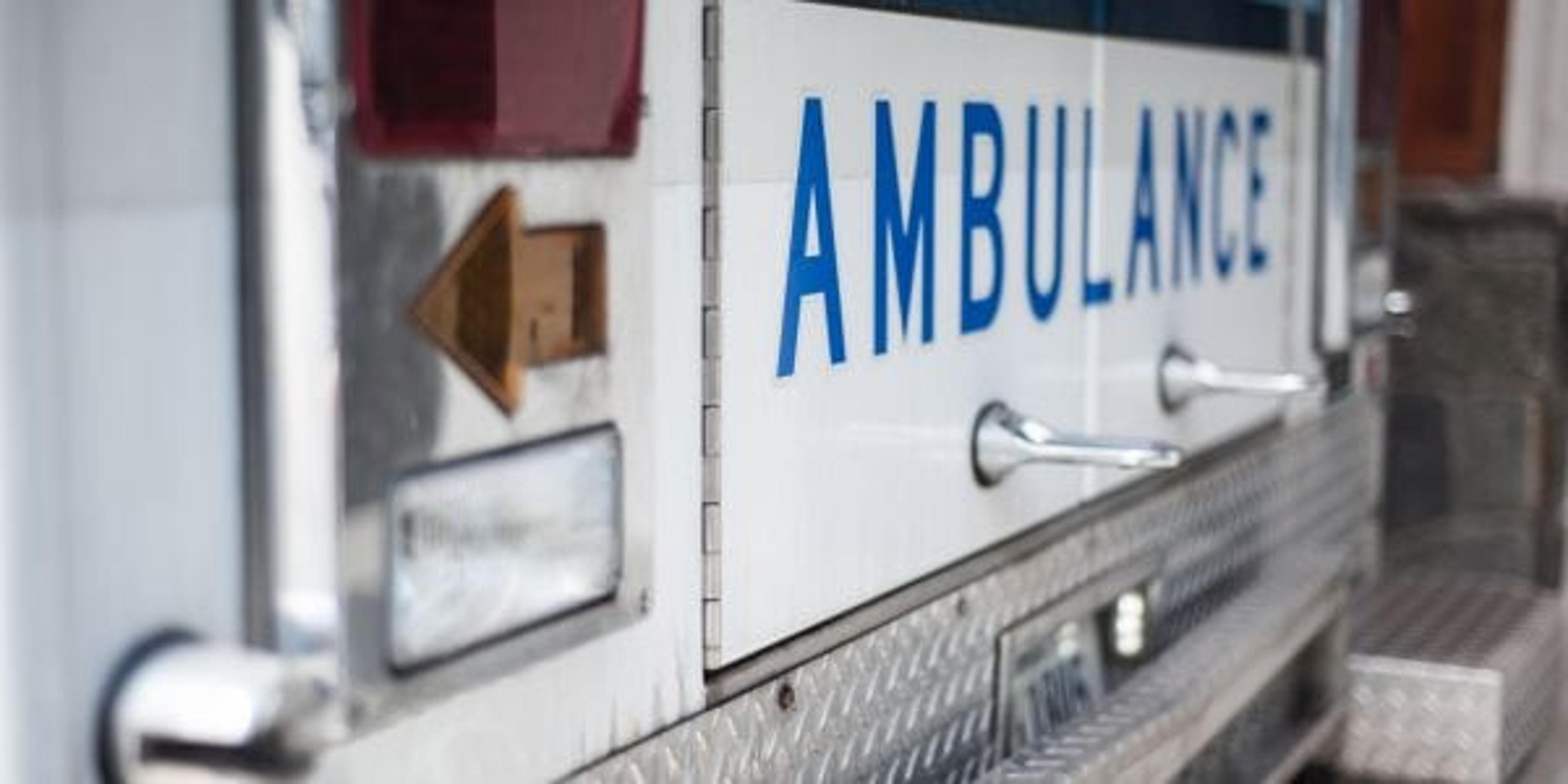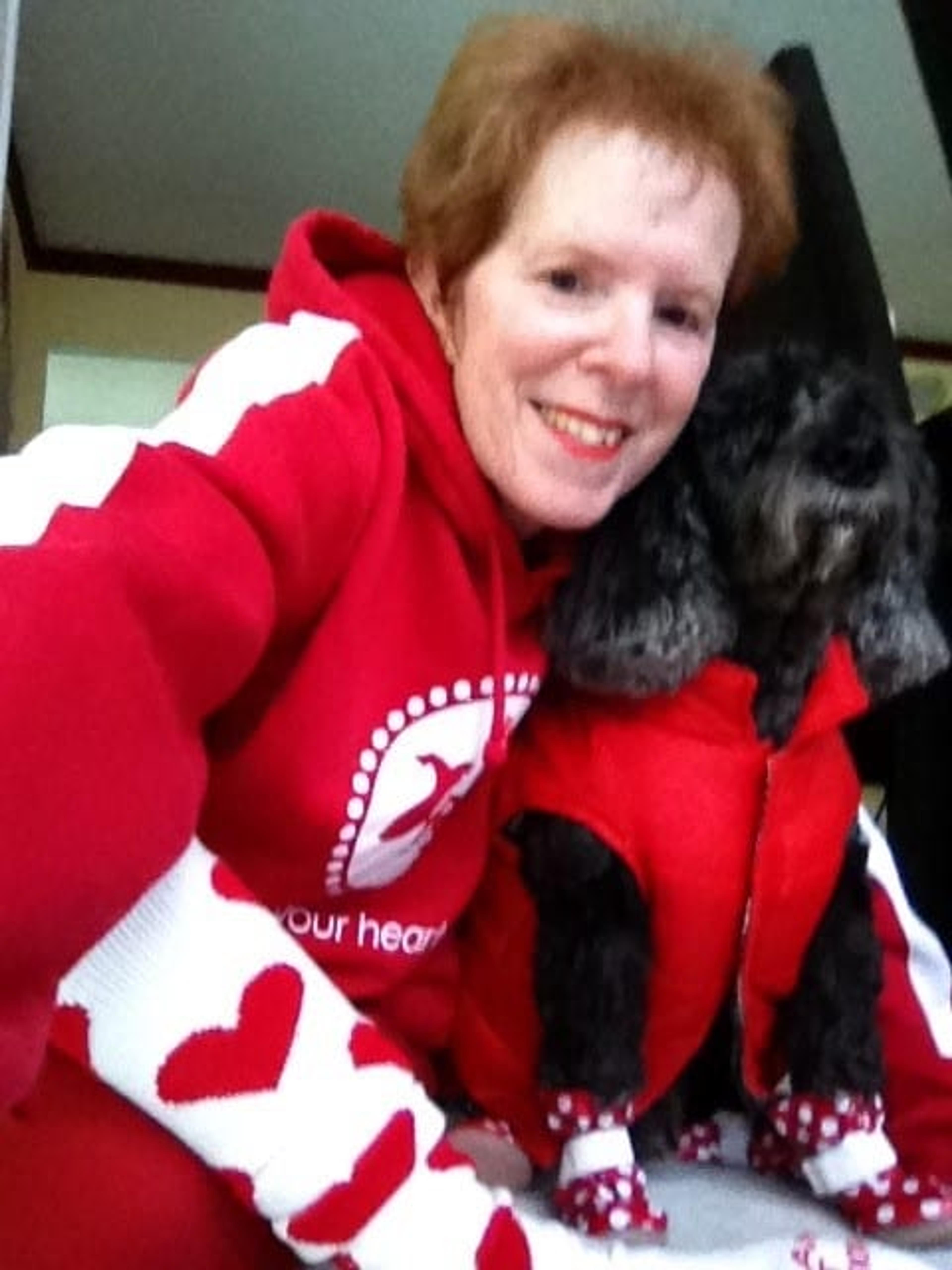Susie’s Story: Surviving a “Widowmaker” Heart Attack

Julie Bitely
| 5 min read

It was an ordinary day. Susie Dubin was driving home from work. Her husband was out of town, so she was absentmindedly thinking about what to make herself for dinner as she navigated the familiar route back to West Bloomfield.
Suddenly, she felt extremely hot and sweaty. “It felt like getting cremated, but I wasn’t dead – it was that hot,” she explained. Tingling in both arms, followed by pain that “felt like somebody had stabbed me in the left shoulder blade,” meant she had to make a choice. She could attempt to drive home or to a nearby fire station or hospital – all were about four miles away.
“They’re all four miles too far,” she remembers thinking, finally pulling up to a Starbucks and honking on the horn for help. The manager came out, she told him she thought she was having a heart attack and closed her eyes. Within what felt like seconds, she could hear sirens and was in an ambulance – a ride she credits with helping to save her life.
“People who drive themselves to the hospital very often don’t survive,” Dubin said.
She’s learned that fact and countless others through a 19-year advocacy and volunteer relationship with the American Heart Association. Dubin was indeed having a heart attack that day on Dec. 29, 1999. Known as a “widowmaker” because of its often-fatal consequences, Dubin’s left anterior artery was blocked, depriving her heart of oxygen. She flatlined in the ambulance and during the three hours of surgery that finally stabilized her.

“I had destroyed the entire left side of my heart,” Dubin said.
That night, doctors told her family to say their goodbyes as she likely wouldn’t make it to the morning. But Dubin had other plans. You can hear the gregariousness in her voice as she tells her story. There are too many funny and touching moments in Dubin’s subsequent hospital stay to recount them all, but one is particularly telling.
Her son and his girlfriend had flown in from Las Vegas to be with her. Dubin knew he planned to propose soon, and his mother’s seemingly failing health inspired him to move up popping the question.
“This is how you stay alive,” Dubin said. “You know your son is going to marry this girl that you set him up with. That’s how you stay alive – keep giving yourself all these future things you have to be around for.”
A different kind of vow also gave Dubin purpose. On her second day of recovery, she made an offhand remark to her cardiologist.
“I’m going to volunteer all my time with the American Heart Association,” she recalls saying, “of which I knew nothing about (at the time).”
Along with family members, she became a dedicated fundraiser and advocate, always willing to share her story for the cause. “Being able to speak about women and heart disease is so empowering to me,” she said.
“I knew that I was meant to be left here for that purpose,” Dubin said. “I knew that right away and even if you’re here for one extra day, if you put everything you’ve got into that day, then that’s the best.”
That positivity reinforces her mantra that she’s a survivor, not a victim. Now 72, she just celebrated her 19th “heart-iversary”. This is not the retirement of traveling she pictured. She tires easily and is often homebound. After years of taking care of her family, she had to learn how to be taken care of by her husband, who quickly assumed many household duties Dubin used to handle. He won’t leave her by herself and she’s assembled a team of friends, family and hired caretakers to come over every morning so he can get his daily runs in, a 40-year habit that keeps him healthy. Still, when he’s not there, he calls often, just checking in.
“I love how much he loves me, and I can’t give him back anywhere near the life that he has given to me before I was sick and since I’ve been sick,” she said.
An eight-year wait on the heart transplant list came and went before Dubin aged off being eligible to receive a new heart. She said she couldn’t really imagine receiving a heart that she wouldn’t be fully able to put to use. The sacrifice would be too great to bear.
“I get it (the decision to be removed from the list) and I’m the one who needs it,” she said.
Despite it all, Dubin has found the beauty in a quieter, simpler life. She’s been given an extra 19 years – more than many who suffer the type of heart attack she did. She was present for the marriage of her son. She’s had more quality time to see her other son, who has Asperger’s syndrome, blossom in a career he loves. She’s cuddled and held three infant grandchildren and watched them grow to their current ages of 16, 13 and 11. They FaceTime frequently and Dubin has a stash of precious letters and artwork they’ve sent her.
It’s not the life she once pictured, but it sure has been beautiful and it’s a gift that hasn’t been squandered.
“I have had 19 years of one of the best parts of my life,” Dubin said.
If you enjoyed this post, you might also like:
Main image photo credit: Joaquin Barbara





